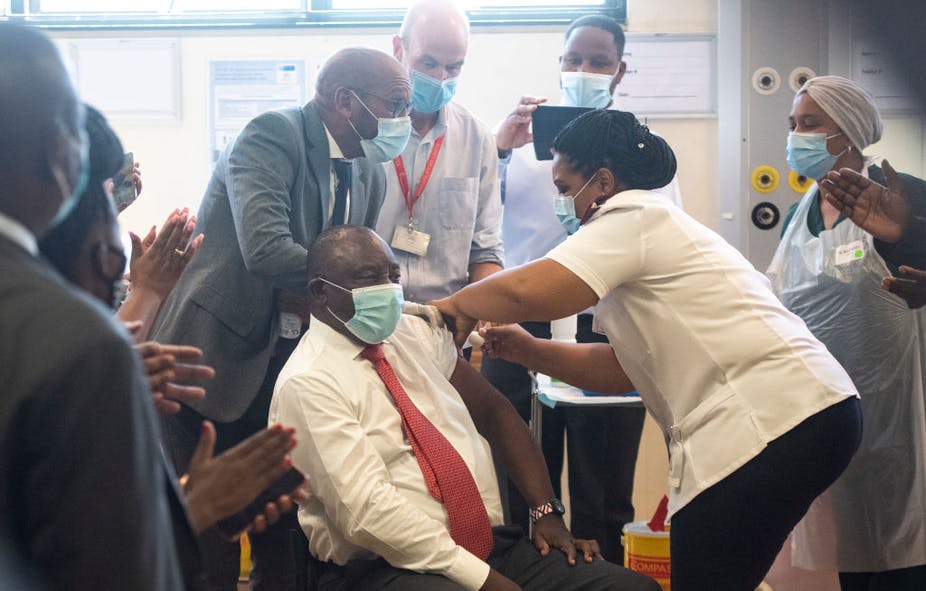Champions of inclusive, equitable and quality public health care have come down hard on President Cyril Ramaphosa, pointing to grave failures in the entire system despite promises of improvement. As South Africans await yet another batch of promises in the State of the Nation Address (Sona), the Health Justice Initiative (HJI) has called out the president on his failure to deliver on last year’s promises. The advocacy group said in his last State of the Nation Address, Ramaphosa hailed 'significant progress’ towards ‘manufacturing vaccines’ but it was unclear what new generation vaccines have been produced in the past 12 months…
Champions of inclusive, equitable and quality public health care have come down hard on President Cyril Ramaphosa, pointing to grave failures in the entire system despite promises of improvement.
As South Africans await yet another batch of promises in the State of the Nation Address (Sona), the Health Justice Initiative (HJI) has called out the president on his failure to deliver on last year’s promises.
The advocacy group said in his last State of the Nation Address, Ramaphosa hailed ‘significant progress’ towards ‘manufacturing vaccines’ but it was unclear what new generation vaccines have been produced in the past 12 months and who has access to them.
ALSO READ: First mRNA vaccine hub ‘a game changer for Africa’
The organisation lamented that SA currently has no meaningful or affordable access to diagnostics and treatment options for Covid-19.
They said despite negotiating a really weak deal at the World Trade Organisation (WTO) as part of the WTO Agreement on Trade-Related Aspects of Intellectual Property Rights (TRIPS) proposal led by SA and India, this was yet to be actioned locally or extended to other technologies.
Ramaphosa spoke proudly on global platforms about ‘African self-reliance and vaccine nationalism’ but the HJI said he has done nothing to give effect to this.
“Our patent laws are severely outdated, and our Cabinet know this and approved a new policy in 2018, but the law to give effect to it has not yet been tabled in Parliament even though it has been drafted,” the HJI said.
The HJI said this deference to pharmaceutical giants and global north governments not only limits SA’s access to affordable essential medicines timeously despite all the clinical trials using public resources but also indicates that Ramaphosa says one thing but his Cabinet does another.
The HJI said the new Patents Amendment Bill has not been tabled in parliament even while a global pandemic has shown how limiting patent monopolies can be for the ordinary person.
The HJI lamented that Ramaphosa and his Trade and Industry Minister Ebrahim Patel were yet to explain how they intend to protect the first World Trade Organisation-backed mRNA Hub set up in SA from broad patents filed.
“We need executive action now, otherwise the entire project of vaccine self-reliance for Africa and the global south is at risk due to the president and minister Patel’s inaction. If SA cannot protect the mRNA Hub, then we may not be able to research and manufacture some of the vaccines needed for conditions such as COVID, HIV and TB,” the HJI said.
ALSO READ: Ramaphosa must explain why previous promises were not implemented
But Dr Harsha Somaroo, a Public Health Medicine Specialist and President of Public Health Association of South (PHASA) said post COVID-19 pandemic, the 2022 Sona gave necessary attention to promoting a sustainable recovery via access to Covid-19 vaccines.
She, however, said currently the proportion of fully vaccinated individuals ranged from 36% in KwaZulu-Natal, to 52% in Free State, saying fatigue, waning efforts, trust deficits and misinformation could be blamed for the inadequate uptake.
Priorities at odds with goals
She said government made key commitments to address key social, economic and environmental determinants of health, including improving access to housing, safe water, economic opportunities and ensuring a just transition to a low-carbon, climate-resilient economy.
Somaroo said progress in these areas was gradual and more explicit attention to the associations between these inter-sectoral determinants of health should be prioritised to impact progress for both health and non-health goals.
She said the health of its people is inextricably linked to the health of a country and should be an essential consideration in the governments’ strategic planning and activities.
“As much as the intersectional commitments to addressing the wide-ranging determinants of health were evident, these need to be more explicitly integrated to healthcare goals. Additionally, there should be focused commitments to improving coverage of access to quality healthcare,” Somaroo added.
According to Somaroo, there was insufficient prioritisation of current health sector challenges as the country moves towards a National Health Insurance (NHI) funding model.
She said the priority now should increasing improved access to safe, effective, efficient, timeous, patient-centred and equitable healthcare as these were critical requirement for appropriate implementation of the proposed NHI plan.
NOW READ: Ramapromises quality healthcare just a pipedream









